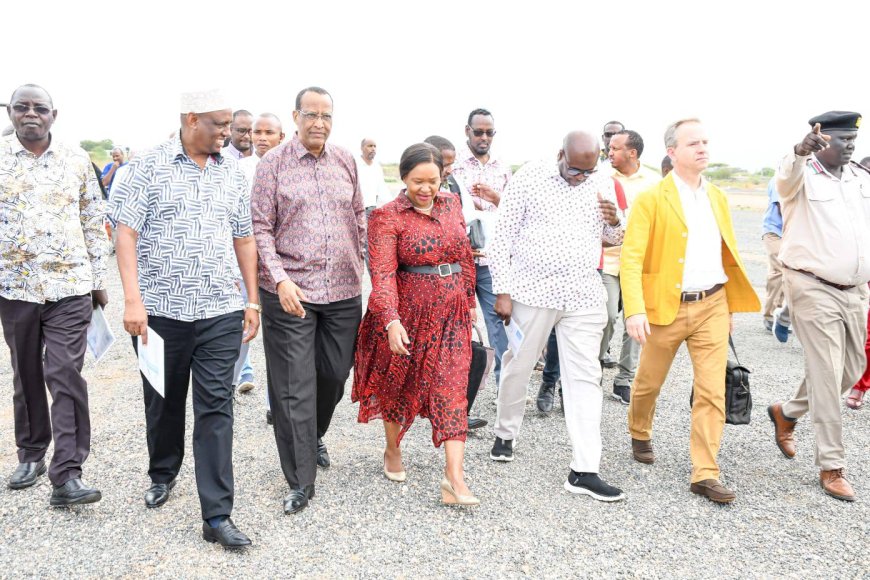CS Miano, ASAL governors meet in Garissa over climate change crisis

Garissa,
Thursday, September 14, 2023
KNA by Erick Kyalo
The government through the Ministry of Arid and Semi-Arid areas, EAC and Regional Development, ASAL counties and development partners are now moving with speed to build resilience in the communities in the face of harsh climate change in these areas.
Led by CS for ASAL Rebecca Miano, UN resident coordinator Stephen Jackson, Japanese Ambassador to Kenya Okinawa Ken, the six governors from the ASAL regions; Ahmed Abdullahi (Wajir), Nathif Jama Adan (Garissa), Mohamed Adan Khalif (Mandera), Mohamud Ali (Marsabit) and deputy governors Mahat Loka (Tana River), and James Lowasa (Isiolo) are meeting today in Garissa for a roundtable to come up with solutions to the challenges of climate change.
Speaking to the press at Garissa primary school grounds, CS Miano said that the government is working on coming up with sustainable resilient measures by empowering communities at the grassroots to tackle climate change effects.
Miano said that the meeting in Garissa would come up with resolutions after going through proposals on what to do in the counties to combat climate change.
“Previously, we have focused more on response, but we will discuss and come up with more sustainable resilience measures and come up with a declaration of the way forward,” Miano said.
“We want resilient building in communities, projects and programmes to be put in place to help the people to be more responsive to disasters like the drought because they will always be there,” she added.
United Nations' resident coordinator Steven Jackson said that they are working on supporting access to education to children in the ASAL regions, terming it as a major ‘equalizer’ which would promote resilience at the individual level.
“We are also here to talk about the climate emergency, the post-Africa Climate Summit because Garissa is one of the most affected areas which is just coming out of a 3- year long drought with six million Kenyans in deep food insecurity,” Jackson said.
“People in ASAL areas are already resilient because they have survived things that would kill me but we need to help them be more resilient in the face of the climate change that is getting worse by being the voice of these people to international partners on investment opportunities and capital to promote climate action,” he added.
Amb. Okinawa on his part said that empowering communities through education and good access to health services would make them more resilient against any disaster in the future.
“We are keen on supporting education and health because in order to make the people in ASAL regions to be resilient in any disaster, it requires that they are empowered. It is also important for the people in these regions, who are mostly pastoralists, to think on how they can adapt to the changing climate so that they can be able to maintain their livelihood,” Okinawa said.
Courtesy; KNA
What's Your Reaction?



































































































































































































































































































